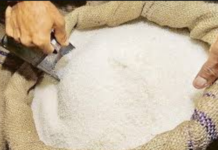ISLAMABAD: Despite making tall claims about ‘tariff structure rationalisation after due consultations with stakeholders’, the commerce ministry, industries & production ministry and other relevant authorities have now realised that the process could not be completed before the budget, informing the government to maintain the existing structure for next financial year.
According to details, following the proposals submitted by the National Tariff Commission (NTC), the Tariff Policy Board had held meetings with the Federal Board of Revenue (FBR), Board of Investment (BOI) and other concerned ministries and institutions to finalise the tariff proposals before the budget for 2020-2021.
However, according to insiders, some sectors had raised serious concerns over the findings of NTC, asking the commerce ministry to consider them before incorporation.
A commerce ministry source informed this scribe that the process has been halted for some time. However, he added, the government may announce some changes in the tariff/duty structure in routine processes through the Finance Bill 2020-21.
Earlier, various sectors had demanded the Ministry of Commerce and other relevant authorities to review the existing tariff structure keeping in view the impact of Covid-19 pandemic.
Through two different tariff policy committees constituted by the MoC and MoIP, proposals were made for tariff rationalisation ahead of the budget.
The Tariff Policy Board, chaired by Adviser to Prime Minister on Commerce & Investment Abdul Razak Dawood, had also constituted further committees to finalise the proposed tariff as various sectors had raised reservations over the draft tariff.
According to commerce ministry officials, apart from discussing the tariff structure and customs’ tariff-related proposals for the upcoming federal budget, the Tariff Policy Board had also deliberated upon the economic impact of the ongoing Covid-19 pandemic as well as ways and means to avert the financial losses to the businesses.
In the previous meetings of the board, the concerned ministries had vowed to rationalise the current tariff regime by analysing the impact assessment of different tariff relief measures taken in the previous fiscal years.
It was decided that there would be multiple sessions of the Tariff Policy Board and the subcommittees of the board to finalise the proposals within the stipulated time.
It was agreed that a win-win situation for everyone including the government exchequer would be created and better collection of direct taxes would make room to provide relief to the documented sectors of the economy.
It is pertinent to mention that after going through the proposed tariffs, some sectors like Pakistan Association of Large Steel Producers (PALSP) had raised concerns over the government’s decision on reducing the taxes on steel imports, saying that it would lead to the closure of the steel industry.
“If duties on long steel products, including billets, bars, wire rods and structures, are reduced, our members will be forced to close factories, resulting in mass unemployment, reduction in revenue generation and a sharp decline in domestic steel supply to the construction industry,” the association had said in its letter sent to the concerned ministries.
























